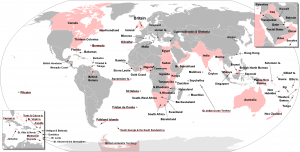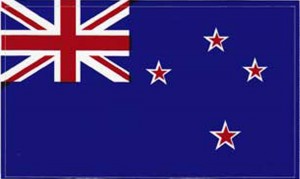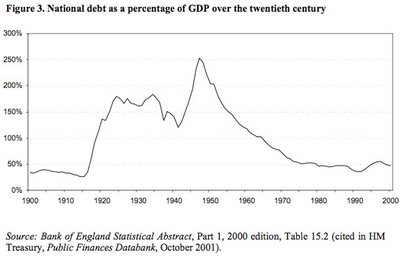Posts Tagged ‘British Empire’
Red is the color of lost empire
In the 1940s, when I was a schoolchild in New Zealand, we used our red pencils to color in maps of the world. Great Britain, of course: England, Wales, Scotland and Northern Ireland (Eire was gone by then). Huge chunks of the African continent that still had their old names and boundaries: Sudan, Gold Coast, Cameroons, Nigeria, Kenya, Uganda, Tanganyika, Rhodesia, South Africa are just some I remember. The Indian subcontinent with neighboring Ceylon and Burma. Pieces of the East Indies archipelago. Australia, our nearest neighbor. Little red dots, lots of them, for Pacific island dependencies. The big swathe of Canada. More dots in the Caribbean, and a dab for British Guiana on the South American mainland. We pressed our red pencils hardest for New Zealand, the furthest outpost of the British Empire, on which, it was said, the sun never set.
This website has a fascinating time lapse view of
the rise and fall of the British Empire.
Even as we children beamed with pride at our splendid red maps, our world was changing. By the time I moved to England in 1962, the political geography I knew as a child was obsolete. The British had retreated from the Indian Empire, leaving behind a land painfully divided between Hindu and Moslem. The red chunks of Africa rearranged themselves into separate nations. South Africa, Canada, Australia and New Zealand declared themselves a Commonwealth, still recognizing the Queen, but independent of British rule.
Old loyalties die hard. The Union Jack still fills the top left corner of the New Zealand flag. In 1962, New Zealanders still looked to England as the “mother country” and I could write to my parents, in my first letter from London: “[W]e have finally arrived in the Heart of the Empire.”
The mood I encountered in the old empire’s capital was bleak. Great Britain had survived World War II, but at an enormous financial cost, and the national debt hung like a shadow over the economy.
After the austerity of the 1950s, living standards were improving, but the country’s wealth, prestige and authority had been severely reduced. Economically, Britain was slipping behind its competitors. Relations between management and labor were bad; the newspapers were full of reports of strikes and unrest. It did not feel like a good place to be starting a new adventure.


